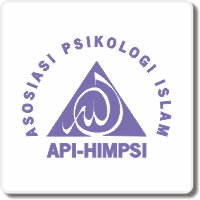THE EFFECT OF SELF-COMPASSION ON DEPRESSION AMONG UNIVERSITY STUDENTS IN YOGYAKARTA
DOI:
https://doi.org/10.32923/psc.v6i1.4243Keywords:
forgiveness, hope, self-compassion, depressionAbstract
The phenomenon of low mental health among Indonesian university students is of concern to experts, professionals, and the public. The high prevalence of depression around university students is an indication of this. The present study aims to determine the effect of self-compassion on depression among university students in Special Region of Yogyakarta. The study involved 280 individuals who were registered as active students at universities in Yogyakarta. The Self-Compassion Scale and the DASS-42 depression subscale were employed as the measurements. The data analysis techniques used were product moment and regression analysis. The objective of product moment is to discover how self-compassion affects depression in university students. Regression analysis is used to analyze the respective contributions of each component of self-compassion to depression in university students. The proposed hypothesis is that there is influence self-compassion towards students’ depression and the contribution of each aspect of self-compassion to students’ depression.
Downloads
Published
Issue
Section
License
Copyright Notice
The Psychosophia: Journal of Psychology, Religion, and Humanity is under the Creative Commons Attribution 4.0 International (CC-BY 4.0) License, according to which:
1) Authors retain copyright and grant the journal the right to first publication, with the work simultaneously licensed under the Creative Commons Attribution (CC-BY 4.0) that allows the sharing of articles published with the acknowledgment of authorship and the initial publication in this journal.
2) The authors are authorized to make additional contracts separately for distribution of the version of the work published in this journal (for example, publication in an institutional repository or as a chapter of the book), as long as there is recognition of authorship and initial publication in this journal.
3) Authors are authorized and encouraged to publish and distribute their work online (for example, in institutional repositories or on their personal pages) at any time before or during the editorial process, as it increases the impact and reference of the published work.






